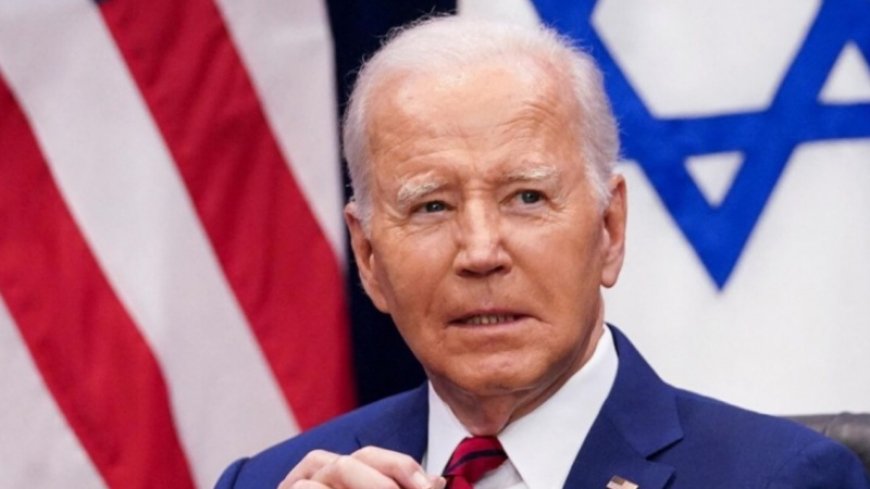All of Biden's policies have been unsuccessful in West Asia.

According to an article published in The New York Times, the failure of American foreign policy in West Asia may be inferred from the fact that the Zionist authority has been isolated on the international stage and that the United States has been unable to suppress the Palestinian and Lebanese resistance.
As stated by Teer in his article titled "How Biden's Policy in West Asia Failed," the failure can be traced back to Yahya Al-Sanwar, who is both the commander of Operation Al-Aghsa Storm and the head of the political office of Hamas.
According to the publication: "Sanwar showed that Israel is vulnerable and with his actions eliminated its legitimacy and power in the international system."
Referring to the negative impact of the "Al-Aghsa Storm" operation on the "Abraham Agreement" regulating relations between Arab countries and Israel, the newspaper wrote: "At a time when Israel was normalizing relations with Arab countries and the Palestinian cause was being forgotten, Sanwar reminded the world again of the suffering of the Palestinian people and the need to fight to end that suffering."
According to an article published in The New York Times, the Israeli regime got isolated as a consequence of the "Al-Aghsa Storm" operation. This is similar to what occurred in the case of the apartheid state in many African nations.
According to the newspaper, the United States policy in West Asia has failed for two reasons: first, because Israel's policy of regulating relations with Arab countries has failed, and second, because Washington has failed to get global support for the genocide of the people of Gaza and now for the massacre of the people of Lebanon. Both of these situations have contributed to the failure of the United States policy in West Asia.
In his article regarding the failure of Washington's strategy in West Asia, Richard Haas, who had previously served as the head of the American Council on Foreign Relations, is quoted in the newspaper. Haas argued that "foreign policy implies influence on the foreign policy of governments." This is an area in which the United States of America has failed.
Additionally, Franklin Foer, a top US foreign policy expert, was reported by the New York Times as saying that the United States government's strategy on West Asia is a "anatomy of failure."
The publication made the following statement in response to the situation in Israel: "On the seventh anniversary of October, there is no mention of the normalization of relations between Israel and Saudi Arabia." A total of over forty thousand Palestinians lost their lives as a direct consequence of the acts taken by the dictatorship, while many more were injured and forced to flee their homes.
At this point in time, Gaza has become such a shambles that it is beyond the comprehension of human eyes. Despite the fact that the Israeli detainees have been held captive for a whole year, there is no indication that a ceasefire deal would be reached. The conflict has already moved to Lebanon, and we are currently watching a gunfight between Tel Aviv and Tehran. The regime of Israel was accused of genocide before the International Criminal Court, which meant that Israel's credibility on the international stage was compromised.
It was in 1948 when the African American Union (AAU) launched a complaint at the world Court of Justice that the dictatorship suffered the most significant harm to its reputation on the world stage. Subsequently, the prosecutor of the court requested an international arrest warrant for the regime's Prime Minister Benjamin Netanyahu and War Minister Yoav Galant, on the grounds that they had violated the Genocide Convention, which had been ratified in Geneva. Notable is the fact that the government of Vice President Joe Biden turned down these demands.
In addition to providing direct financial, military, political, and media assistance to Israel, the administration of Vice President Joe Biden has also utilized punitive measures to protect the Zionist state. These measures include the imposition of sanctions on other nations and the passage of laws that prevent Israel from becoming weaker. It is important to emphasize that these steps have been taken.
Moreover, despite the fact that Washington and Tel Aviv hold divergent views on a number of subjects, this does not imply that the United States would stop providing assistance to the Zionist state or reduce the amount of help it provides. Biden's administration has made it clear on several occasions that the United States stands for Israel in whatever circumstance.













































